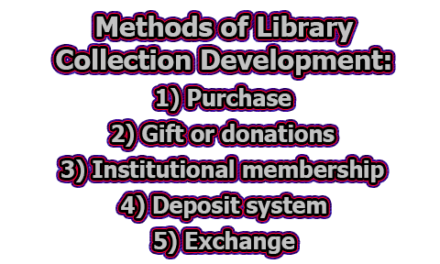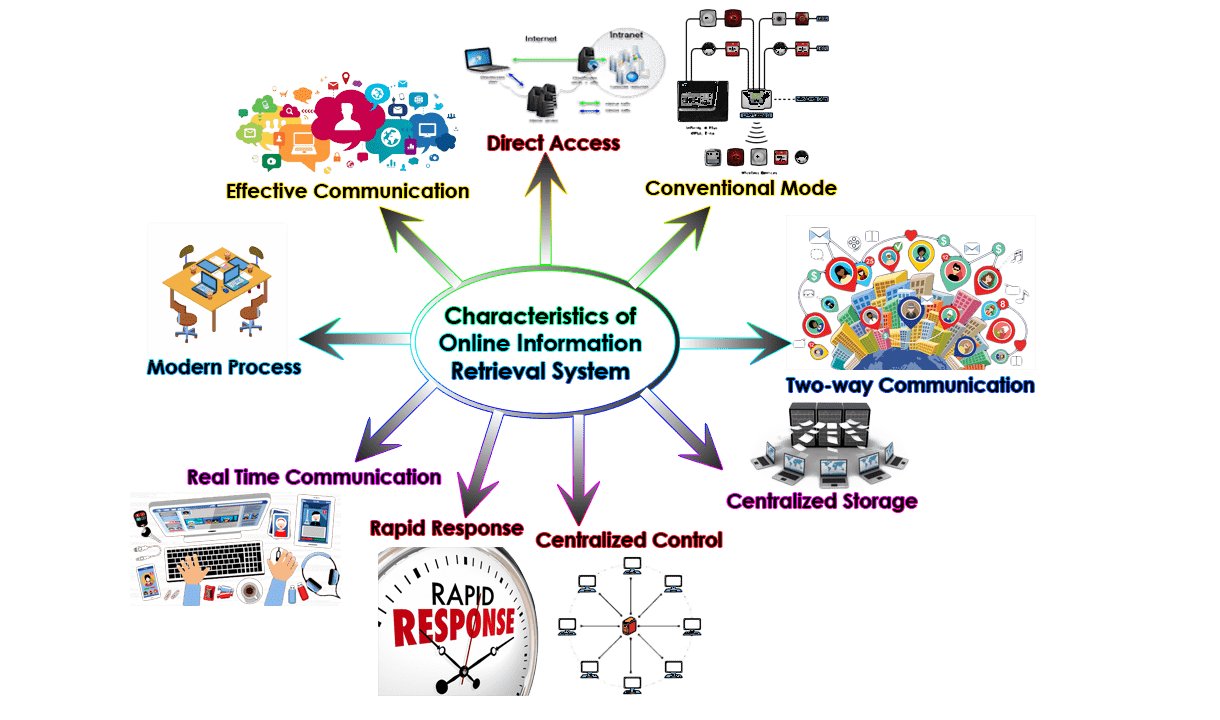Resource Sharing in the Online Environment:
The concept of resource sharing in library science refers to the process of libraries working together to provide access to resources and services that may not be available at individual libraries. Resource sharing is an essential component of library science as it enables libraries to increase the range of services they offer and to provide better access to materials for their users. In the online environment, resource sharing has become increasingly important due to the growing demand for digital resources and the need for libraries to provide access to these resources to their users. In this article, we will discuss the various aspects of resource sharing in the online environment and how it can benefit libraries and their users.
Types of Resource Sharing:
Resource sharing in the online environment can take several different forms, including interlibrary loans, cooperative collection development, consortial purchasing, and shared digital repositories.
1. Interlibrary Loan: Interlibrary loan is the process of borrowing materials from another library for use by the patron of the requesting library. Interlibrary loan is a critical component of resource sharing in library science, as it enables libraries to provide access to materials that they do not hold in their collections. In the online environment, interlibrary loan can be facilitated through electronic document delivery systems that allow for the electronic transfer of documents between libraries.
2. Cooperative Collection Development: Cooperative collection development is the process of libraries working together to develop collections that are more comprehensive and diverse than what individual libraries could develop on their own. Cooperative collection development can take several forms, including shared collection development policies, joint purchasing agreements, and collaborative collection development efforts.
3. Consortial Purchasing: Consortial purchasing is the process of libraries pooling their resources to purchase materials at a lower cost than they would be able to if they purchased the materials individually. Consortial purchasing can take several forms, including group purchasing agreements, shared licensing agreements, and collaborative acquisition agreements.
4. Shared Digital Repositories: Shared digital repositories are digital collections of materials that are maintained by multiple libraries or library consortia. Shared digital repositories can include a wide range of materials, including books, journals, photographs, and other digital materials. Shared digital repositories can provide access to materials that might not be available through interlibrary loan or other forms of resource sharing.
Benefits of Resource Sharing in the Online Environment:
Resource sharing in the online environment can provide several benefits for libraries and their users. Some of the key benefits are including:
- Increased Access to Materials: Resource sharing in the online environment can provide libraries and their users with access to materials that might not be available at individual libraries. This can include access to digital resources such as e-books, e-journals, and other digital materials.
- Cost Savings: It can help libraries save money by allowing them to pool their resources to purchase materials at a lower cost. This can include consortial purchasing agreements, group purchasing agreements, and other collaborative acquisition efforts.
- Improved Services for Users: It can help libraries improve their services for users by providing access to a broader range of materials and services. This can include access to materials that might not be available at individual libraries, as well as access to specialized services such as document delivery.
- Increased Collaboration: It can help foster collaboration between libraries and library consortia. This can include collaborative collection development efforts, joint purchasing agreements, and other forms of collaborative acquisition.
- More Efficient Use of Resources: It can help libraries make more efficient use of their resources by enabling them to share materials and services. This can include interlibrary loans, shared digital repositories, and other forms of resource sharing.
Challenges of Resource Sharing in the Online Environment:
While resource sharing in the online environment can provide several benefits for libraries and their users, it can also present several challenges. Some of the key challenges are given below:
- Technical Challenges: One of the biggest challenges of resource sharing in the online environment is the technical infrastructure required to support it. Libraries must have robust and reliable systems in place to facilitate electronic document delivery, shared digital repositories, and other forms of online resource sharing.
- Intellectual Property Rights: Intellectual property rights can be a significant challenge when it comes to online resource sharing. Libraries must ensure that they have the necessary permissions to share materials electronically and must be able to navigate complex copyright laws and licensing agreements.
- Uneven Access to Technology: Not all libraries have equal access to technology, and this can create disparities in online resource sharing. Libraries in wealthier areas or with larger budgets may have more robust technical infrastructure and may be better equipped to participate in resource-sharing initiatives than smaller or underfunded libraries.
- Security and Privacy Concerns: Online resource sharing can also present security and privacy concerns. Libraries must ensure that they are protecting patron data and that they have appropriate security measures in place to prevent unauthorized access to electronic resources.
- Complex Workflows: Resource sharing in the online environment can be complex and require significant coordination between libraries. This can create challenges related to workflow management and require libraries to invest in additional staff and resources to manage online resource sharing effectively.
From the above discussion, we can say that resource sharing in the online environment is an essential component of library science, and it provides several benefits for libraries and their users. However, it can also present several challenges, including technical infrastructure requirements, intellectual property rights, uneven access to technology, security and privacy concerns, and complex workflows. As libraries continue to expand their online offerings and embrace digital resources, it is essential to address these challenges and develop effective strategies for resource sharing in the online environment. By doing so, libraries can continue to provide high-quality services to their users while leveraging the power of technology to expand access to information and knowledge.
References:
- American Library Association. (2019). Interlibrary loan code for the United States.
- Association of Research Libraries. (2018). Cooperative collection development.
- Breeding, M. (2019). Consortial purchasing. Library Technology Reports, 55(2), 5-11.
- International Federation of Library Associations and Institutions. (2015). IFLA statement on digital libraries.
- Kyrillidou, M. (2017). Resource sharing in the 21st century: An overview of trends and challenges. Journal of Library Administration, 57(8), 817-827.
- McKenzie, E., & Twait, M. (2019). Resource sharing in the digital age: Challenges and opportunities. Journal of Interlibrary Loan, Document Delivery & Electronic Reserve, 29(1), 1-9.
- Rupp-Serrano, K., & Wrenn, E. (2018). Resource sharing in the digital age: A collaborative approach. Journal of Library & Information Services in Distance Learning, 12(3-4), 144-156.
- Tenopir, C., & King, D. W. (2018). Resource sharing in the digital age. Journal of Library Administration, 58(2), 117-129.
- University of California Libraries. (2018). Shared digital collections.

Library Lecturer at Nurul Amin Degree College










